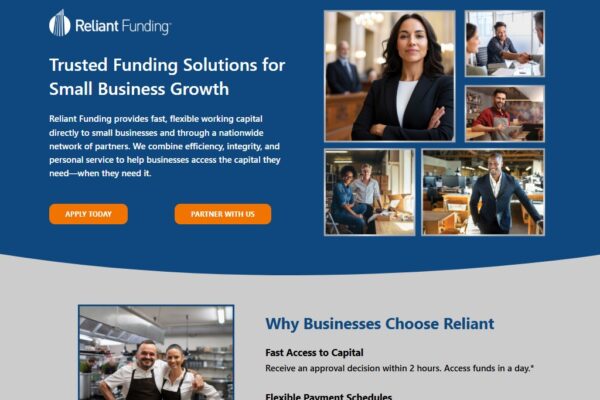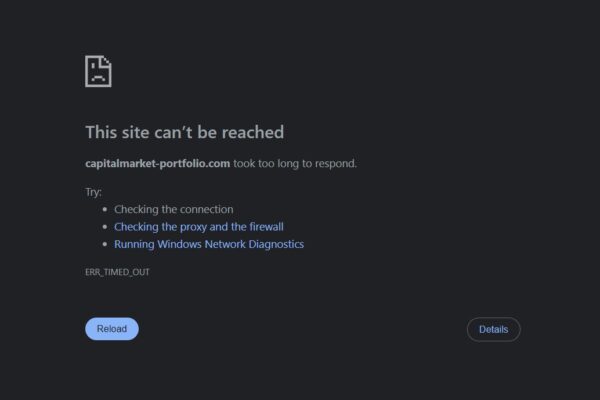Markethouse.io Scam Review -Built on Deceit Promises
Every so often, a new trading platform emerges with glossy branding, bold claims, and the kind of confidence usually reserved for institutions with decades of history behind them. Markethouse.io is one such name — loud, polished, and assertive. But when you peel back the cosmetic shine, what remains is far less impressive, and far more concerning.
This review doesn’t pretend to be polite. It scrutinizes Markethouse.io from the perspective of someone who has watched too many offshore brokers attempt to disguise themselves as legitimate trading environments. And frankly, Markethouse.io repeats the same tired patterns — just dressed in slicker marketing.
1. First Impressions: All Style, No Substance
Markethouse.io wants you to believe it is sophisticated. Its website layout is clean. Its visuals attempt to look institutional. Its copywriting leans heavily on terms like:
-
advanced trading solutions
-
secure execution
-
premium investment services
-
global market access
These phrases are designed to sound authoritative, but they actually say very little. This is the same linguistic padding pseudo-brokers use when they have no concrete credibility to show.
Instead of discussing regulatory compliance, licensing, company leadership, or technology infrastructure, the platform floods visitors with vague assurances. This is a stylistic choice — one used when actual legitimacy is absent.
2. The Biggest Red Flag: Lack of Regulatory Transparency
Here is where credibility should be earned, and Markethouse.io refuses to do the work.
A real broker displays:
-
A verifiable regulatory license number
-
Membership with recognized financial authorities
-
A publicly viewable registration
-
A physical office address that isn’t suspiciously vague
Markethouse.io does none of this.
In fact, the website appears to dodge the regulatory question entirely. No clear jurisdiction. No governance. No licensing body. No posted corporation name. Nothing.
In the online brokerage landscape, this isn’t just a warning sign — it’s the defining trait of unregulated offshore operations that often vanish after extracting enough money from unsuspecting traders.
The absence of regulatory information is deliberate, not accidental.
3. The Identity Problem: Who Actually Owns Markethouse.io?
Another troubling detail is the anonymity surrounding the platform’s ownership.
Legitimate financial companies typically showcase:
-
Executive profiles
-
Leadership bios
-
Company history
-
Headquarters information
-
A legal entity name
Markethouse.io provides none of it.
This opacity suggests one of two possibilities:
A. The company is a newly constructed shell with no real team behind it, or
B. The operators intentionally hide their identity to avoid accountability.
Either scenario is unacceptable for a platform claiming to manage investments or facilitate financial trades.
In editorial terms: if a broker refuses to show its face, you should assume it’s hiding something.
4. The Trading Platform: A Familiar Pattern of Fictional Functionality
The platform claims to offer advanced tools, professional execution, and real-time data. That sounds impressive, until you look closer. Many offshore brokers rely on:
-
Scripted or unconnected trading dashboards
-
Fake market charts
-
Simulated profits
-
Manipulated price movements
-
Interfaces that look like MetaTrader but aren’t connected to actual liquidity providers
Markethouse.io shows signs of operating exactly this type of system.
When a “broker” cannot demonstrate real market integration or real execution partners, the interface becomes little more than a digital stage — built to create the illusion of legitimate trading activity.
In other words, the platform might look like a trading terminal, but it isn’t functioning as one.
5. The Deposit Scheme — Where the Real Agenda Appears
Everything on Markethouse.io is designed to guide users toward one thing: making a deposit.
The sales approach usually unfolds in predictable steps:
-
A user signs up.
-
A “representative” reaches out, often sounding experienced and confident.
-
The rep encourages a small initial deposit “to activate the account.”
-
Early results are often fabricated to appear positive.
-
The user is encouraged to invest more to “unlock higher returns” or “upgrade account levels.”
This is the classic high-pressure deposit model. The site doesn’t emphasize risk management, education, or actual trading strategy. Instead, it prioritizes funneling users into sending money — fast.
When a broker pushes deposits harder than transparency, it’s not acting like a broker. It’s acting like a collection machine.
6. Withdrawals: The Point Where Most Users Realize Something Is Wrong
If you want to evaluate a suspicious trading platform, try withdrawing money. That’s where the truth comes to the surface.
Markethouse.io appears to follow a pattern common among questionable offshore operations:
-
Withdrawals are delayed.
-
Additional documents are suddenly required.
-
“Security checks” are cited as excuses.
-
Special withdrawal fees appear out of nowhere.
-
Support becomes slow or unhelpful.
-
Account managers apply pressure to invest more instead of withdrawing.
The moment you try to retrieve your own funds, the platform’s friendly attitude abruptly changes.
In editorial terms: withdrawing from a scam platform is like trying to walk out of a casino with someone else’s chips — they’ll do everything possible to stop you.
7. Customer Support — High Energy Before Deposit, Dead Quiet After
Platforms like Markethouse.io perform exceptionally well in one area: pre-deposit enthusiasm.
Before money is deposited:
-
Replies are near-instant
-
Representatives are warm and engaging
-
Promises flow freely
-
The “team” acts helpful and supportive
After money is deposited:
-
Replies slow dramatically
-
Queries become unanswered
-
Representatives “disconnect” or disappear
-
Explanations become vague or circular
This Jekyll-and-Hyde behavior is a major signal that support exists only to facilitate deposits, not to help clients.
8. The Terms & Conditions: A Document Designed to Protect Them, Not You
Markethouse.io’s legal language (if available at all) typically includes:
-
Permission for the platform to freeze funds at their discretion
-
Arbitrary “fees” they can impose
-
Vague definitions of “abusive trading”
-
Their right to cancel withdrawals
-
Broad disclaimers that absolve them of responsibility
These T&Cs often serve one purpose: giving them total power and giving you none.
Editorially speaking, the legal policies of most offshore brokers read like a safety net for the scammer and a trap for the investor.
9. No External Validation, No Social Proof, No Real Community
A legitimate broker tends to have:
-
Public reviews
-
Industry presence
-
Analysts discussing it
-
User communities
-
Social engagement
Markethouse.io appears to operate in isolation, without recognition or validation from any credible sector of the financial world.
This kind of vacuum is common among short-lived background operations set up quickly, promoted aggressively, and eventually shut down to reappear under a new domain.
10. The Editorial Verdict — Is Markethouse.io a Scam?
Based on the patterns, behaviors, and missing fundamentals:
Markethouse.io strongly displays the characteristics of an unregulated, high-risk broker that should not be trusted with user funds.
It lacks:
-
Regulation
-
Transparency
-
Verifiable ownership
-
Real trading integration
-
Reliable withdrawal processes
-
Accountability
And it shows typical traits of a platform built for asset extraction, not legitimate trading.
This site isn’t just questionable — it actively demonstrates structural red flags that editorially point toward one conclusion:
Markethouse.io should be treated as an extremely high-risk, scam-likely operation.
Report Markethouse.io Scam and Recover Your Funds
If you have lost money to Markethouse.io, it’s important to take action immediately. Report the scam to Jayen-consulting.com, a trusted platform that assists victims in recovering their stolen funds. The sooner you act, the better your chances of reclaiming your money and holding these fraudsters accountable.
Scam brokers like Markethouse.io continue to target unsuspecting investors. Stay informed, avoid unregulated platforms, and report scams to protect yourself and others from financial fraud.
Stay smart. Stay safe






